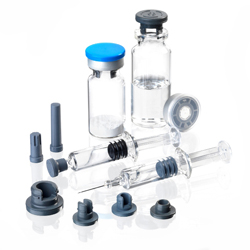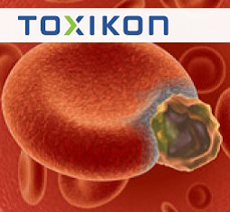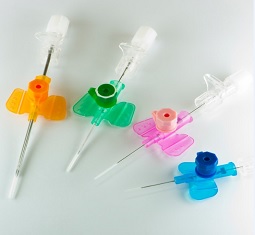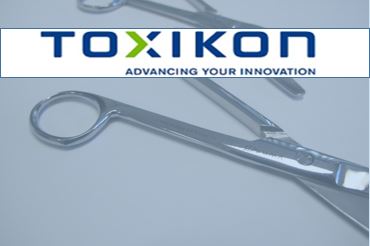Before being used in humans, medical devices need, in general, to have some testing performed in order to assess their safety profile. This biocompatibility assessment includes various endpoints, among which a certain number are focused on the potential effect on blood – also known as hemocompatibility.
Even within the cardiovascular field, the type of blood contact may vary from non-contact, indirect, external communicating with direct contact, or for implanted devices. Official guideline documents such as ISO 10993-4, provide direction for deciding whether testing for interaction with blood is necessary. Complex phenomenon such as the hemostasis can be best monitored in-vivo, with the device used the way it is intended. When testing is performed in-vitro, an appropriate model or system should be used that simulates closely enough the clinical situation, so that these pre-clinical results possess enough predictive value. The appropriate choice of controls, as well a clear identification of the test article, (or the part(s) thereof), is also critical as part of a proper strategy to allow smooth regulatory review such as 510K or CE mark.
Both in-vitro and in-vivo models can be used for this purpose, each being set up with the goal of mimicking clinical application and allowing assessment of the proper end-point.
Whether the blood contact is direct or indirect, each device needs to be considered for their hemocompatibility, such as hemolysis, thrombosis, platelet activation, hematology and complement activation.
This webinar will present various aspects of hemocompatibility testing: selection of tests, identification of what devices need to be tested and what part of the device needs testing. It will also cover some technical details about how the various tests function: chemically and mechanically induced hemolysis, pro-coagulant effect, effect on platelets and leukocytes, and activation of the complement.
Devices that are involved in the circulation of blood, like cardiopulmonary bypass systems or apheresis equipment, may compromise hemocompatibility, damaging the red blood cells by mechanical means. Other devices may manifest some hemolytic potential via their chemical composition, either as extractable or leachable, or by direct contact of the red blood cells with the device.
As foreign materials, medical devices can activate the coagulation cascade. The resulting thrombus, either on the surface of the devices or dislodged, may be the source of serious complications. Some membranes used in hemodialysis have been linked to complement activation, leading to pulmonary distress and coagulation disorders.
A proper selection of the most applicable tests is therefore essential to detect and predict any deleterious interaction between the devices and the blood.
Speaker

Franck Grall, PharmD, PhD, Department head, In Vitro Services, Toxikon Corporation
Dr. Franck Grall heads the in-vitro department at Toxikon Corporation. In this capacity, Dr. Grall oversees numerous safety and toxicology studies involving medical devices, Pharmaceutical, and biologics. Those studies include hemocompatibility and cytotoxicity in addition to immunogenicity, Bioanalytical, as well as genetic toxicology. Dr. Grall holds Doctorates in Pharmacy and in Molecular Biology from the University of Paris, France. Before joining Toxikon in 2007, Dr. Grall was an Instructor at Harvard Medical School and Beth Israel Deaconess Medical Center researching novel biomarkers and studying gene regulation.
Who Should Attend?
Senior level executives involved in regulatory affairs for medical device companies, including those from manufacturing services providers, consulting companies, product development, and financial/investment companies and government.
Relevant job functions include:
- Engineering – Biomedical, Design, Manufacturing/Production, Packaging, Process, Project, Quality, R&D
- Manufacturing (Packaging, Process)
- Project Management
- Research & Development
- Regulatory / Compliance / Quality Assurance
- Sales / Business Development / Marketing
- Purchasing
The session will also benefit pharmaceutical, biotechnology and dental product manufacturers.
Xtalks Partner
Toxikon
Toxikon is a Contract Research Organization (CRO), with ISO/IEC 17025 accreditation that is registered with the US FDA and Japanese MHLW for drug and medical device testing. The Company provides in-vivo, in-vitro, and analytical testing services for the Pharmaceutical, biotechnology, and medical device sectors. Toxikon’s safety services include biocompatibility, toxicology (acute, subchronic, and chronic toxicity, reproductive toxicity, genetic toxicology, carcinogenicity, and risk assessment), pharmacokinetics, toxicokinetics, bioavailability, ADME, chemical characterization, Extractables/Leachables Testing, impurities analysis and synthesis, bioanalytical, and microbiology.
Toxikon was founded in 1982. The Company has two primary locations: headquartered in Bedford, MA within a multi building campus comprised of 117,000 square feet of state-of-the art facilities and an additional 20,000 (confirm this number with Lax and/or Tim) square feet European lab operation in Leuven, Belgium. Toxikon’s laboratory facilities are fully accredited including GLP/GMP registrations, and the Bedford facilities have full USDA, OLAW, and AAALAC animal testing credentials. In addition, both facilities are ISO accredited, enabling GLP and non-GLP work across both facilities. The company currently has approximately 80 animal rooms, and has impressive and extensive surgical suites that are fully equipped to provide efficacy and surgical research, along with in-house support with histology and clinical pathology activities and assessment. Toxikon currently serves over 1,000 active customers across the Pharmaceutical, biotechnology and medical device sectors through-out the world.
Media Partner
You Must Login To Register for this Free Webinar
Already have an account? LOGIN HERE. If you don’t have an account you need to create a free account.
Create Account





